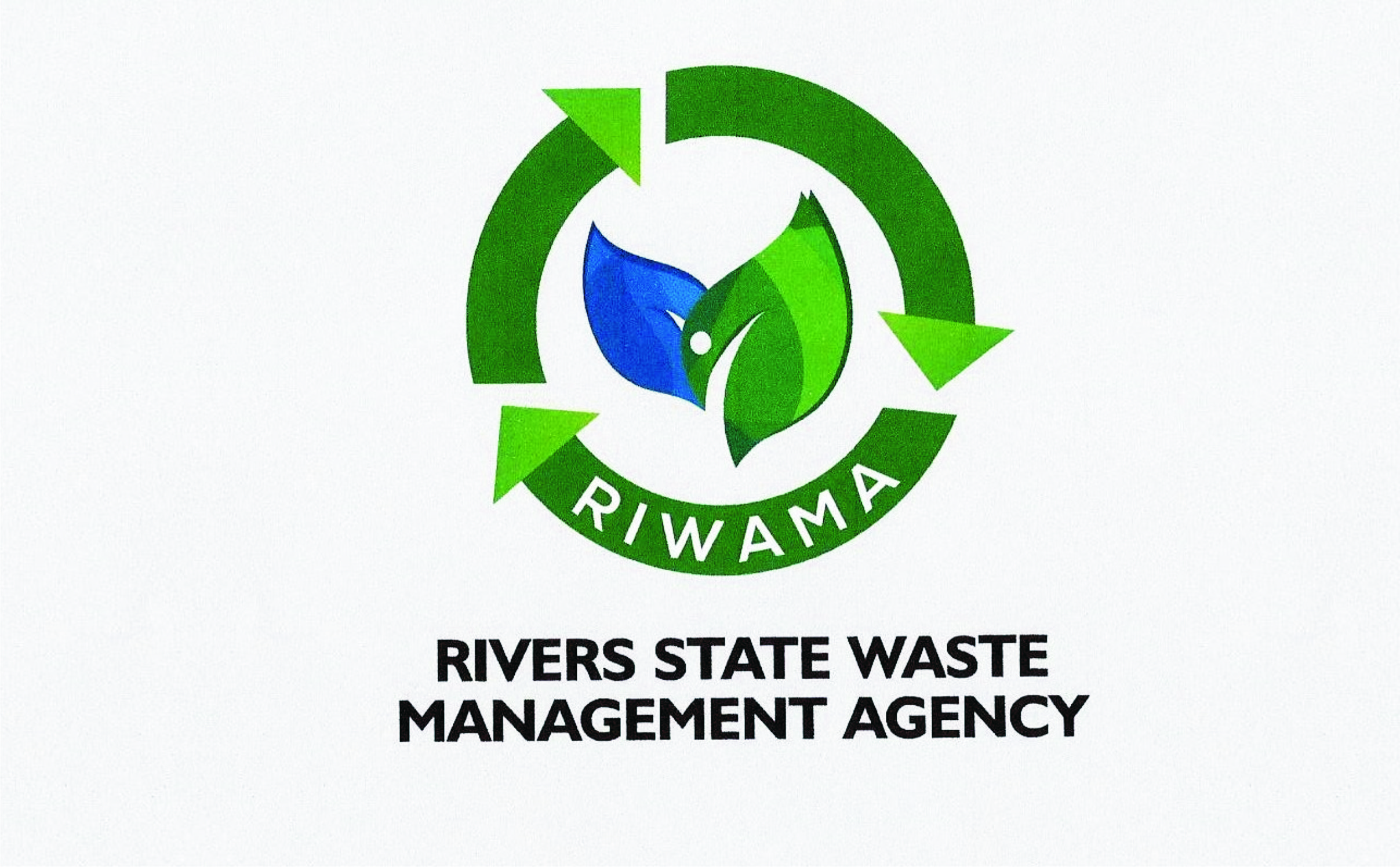News
Between NAFDAC And Fake Drugs
The fight against fake drugs has over the years been a national question in the nation’s polity. As it were, the National Agency for Food, Drugs Administration and Control (NAFDAC) was established to reduce to the barest minimum the sales of adulterated drugs across the country’s cities, towns and villages.
But in the recent past, the sales of fake drugs in the country by those ubiquitous medicine dealers have reached a frenetic and feverish pitch. This unfortunate development points to the fact that the effort of the officials of NAFDAC to halt the sales of counterfeit drugs appears not to have yielded the desired result.
Oddly enough, Nigerians are inundated with daily reports on the discovery of patent medicine shops selling adulterated drugs to members of the public. More worrisome is the fact that this is happening in the major cities where NAFDAC personnel are supposedly operating regularly.
Not too long ago, NAFDAC authorities shut over 200 patent medicine shops in Cross River State.
The Deputy Coordinator of NAFDAC in the state, Abdulkarim Razaz who announced this in Calabar said the campaign against fake drugs would continue as long as patent drug dealers did not discontinue in the nefarious trade of selling counterfeit drugs.
While commending the effort of NAFDAC personnel for shutting down over 200 patent medicine shops in the state, one is at a loss to understand why over 200 fake medicine shops were still operating in the state, right under the nose of officials of NAFDAC serving in that state.
Beyond that, the authorities of NAFDAC must spread their dragnets to all the nooks and crannies in the state in order to apprehend more patent medicine stores, still selling fake drugs. This , would in no means way, reduce (drastically) the danger being faced by consumers of fake drugs in the state.
Only recently, it was discovered that over 90 per cent of the pharmaceutical and patent medicine stores in Port Harcourt, the Rivers State capital, sell adulterated drugs to members of the public. This is indeed, sad, to say the least!
Mr Momodu Segiru, Director of the Port Harcourt Inspectorate Directorate of NAFDAC, said the discovery followed a mechanical test carried out recently on drugs in circulation in the Port Harcourt metropolis, and announced that the test was part of the agency’s nationwide sensitisation campaign to ascertain the level of fake and substandard drugs in circulation with the aim of mopping up dangerous drugs and identifying their sources.
According to Mr Segiru, the exercise was also to demonstrate the use of the “true scan” equipment for on the spot testing of drugs, and noted that the machine (true scan) has indeed, brought some speed and accuracy in NAFDAC’s operations, as massive failure was recorded in Choba, Mile One and some other areas of Port Harcourt.
To the chagrin of NAFDAC officials, it was also discovered that all the drug stores tested in Rumuokwurusi and Woji areas of Port Harcourt, recorded failure in one drug or the other, an obvious indication that very limited wholesome drugs are in circulation in Port Harcourt and its suburbs.
All said,with the , discovery that over 90 per cent of drugs sold in patent medicine shops in Port Harcourt are fake, it is certainly not an overstatement that the life of most residents are now in great danger, apparently caused by those ubiquitous patent medicine dealers. Indeed, it also rubbished the image of NAFDAC, as the agency charged with the responsibility of policing the manufacturers and wholesalers of fake drugs in the country.
The question now is: what were the officials NAFDAC in Port Harcourt doing when the spate of fake drugs in circulation got to 90 per cent level? Undoubtedly, this is an indication that the agency’s personnel are not doing enough to nip in the bud the antics of adulterated drug dealers.
Again, if 90 per cent of the pharmaceutical and patent medicine shops in Port Harcourt sell counterfeit drugs to members of the public, then only heavens know the spate of fake drugs being sold in the 23 local government areas of the state. This is why NAFDAC personnel must wake up from their stupor and move into the grassroots in order to halt the trend.
Obviously, Rivers and Cross River states are not the only states enveloped in the sale of fake and counterfeit drugs.
Therefore, NAFDAC authorities must beef up their investigations into the existence of patent medicine shops, dealing on fake drugs in the country.
One’s position on this touchy issue is premised on confirmed reports that the nation’s cities, towns and villages are again facing the emergence of patent medicine shops, selling fake drugs to unsuspecting members of the public
That being so, one believes that the time has come for the authorities of NAFDAC to set up a technical committee in every state of the federation, that would monitor (on regular basis) the sale of counterfeit drugs in the cities, towns , and villages in the country.
Yes, NAFDAC’s desire to win the war on fake drugs, can only be achieved if the agency carries its investigations to the vi llages because, it has been confirmed that counterfeit drugs are sold with ease in the nation’s villages than cities and towns.
News
Enforce Discipline In Legislative Service, Fubara Charges New RSHA Commission

Rivers State Governor, Sir Siminalayi Fubara, has charged newly sworn-in chairman and members of the State House of Assembly Service Commission to achieve greater productivity, promote highest standard and insist on best practices in the discharge of Legislative services.
Governor Fubara also urged them to ensure that parliamentary staff are put through disciplinary conducts in the discharge of their duties in the service.
Governor Fubara gave the charge shortly after the chairman and members of the Rivers State House of Assembly (RSHA) Service Commission were sworn-in at the Executive Chamber of Government House in Port Harcourt, last Friday.
The Governor also sworn-in the chairman and members of the Rivers State Local Government Service Commission.
Hon Tamunosisi Gogo-Jaja, is the chairman of RSHA, with Dr Kennedy Ebeku, Hon. Soberekon Clark, Hon. Jones Ogbonda, and Hon Kingston Sylvanus as members.

For the Rivers State Local Government Service Commission, Hon GoodLife Ben will serve as the chairman, with Chief Emmanuel G. Jaja, Ms. Betty Warmate, Barrister Jerome Chimenem, Hon Prince O. Ohochukwu, Barrister Philip Okparaji, and Christian Amadi as members.
Governor Fubara explained that the constitution and swearing-in of the respective commissions were delayed with the hope that all former members of the political block will come back together but quickly added that such expectation is dashed now as governance has to move on.
He said: “As it stands now, our position is very clear. The ship that we are onboard is clear, and the activities of governance have to continue.
“So, this swearing-in is to give these two units of government – particularly, the House of Assembly Service Commission, a formal commission so that you can start carrying out the activities of promotion, discipline and every other thing that has to do with the legislative staff activity.”
Governor Fubara emphasised: “This assignment is not business as usual. You have to take full charge, and you have to ensure that there is discipline in the service.”
Speaking on the Local Government Service Commission, Governor Fubara said an acting Chairman was previously appointed to hold brief while the situation was being studied but quickly added that as it stands now, a full fledged commission has to be constituted to steer affairs.
Governor Fubara stated that the various Local Government Councils have been mandated to commence payment of the N85,000.00 Minimum Wage to their workers.
However, Governor Fubara said that mandate had met with series of complaints about ghost workers or inflated payroll staff list, which required proper scrutiny in order to ensure that only genuine workers benefit.
He said, “You must ensure that you support the Local Government Chairmen to get rid of those fake names in the payroll, so that when they implement the N85,000.00 Minimum Wage, it will not be too much burden on them.
“I am not saying you should go and dismiss people who are genuinely employed. Hear me very well: there must be proper scrutiny to be sure that whoever is there must be a genuine civil servant employed by the commission, and must have met all the conditions.”
Governor Fubara also directed the commission to address the issue of staff stagnation on a particular grade level, which is an ugly practice, and make sure those due promotion truly benefit from statutory progression in the service.
He said, “The second side is, you have the issue of promotion, you must also ensure that they are adequately promoted so that they can start enjoying like their counterparts in the mainstream.
“There is too much dragging of their promotion, for somebody to be on Grade Level 4 for over 30 years is not good. It is not good news.”
Governor Fubara maintained: “I believe strongly that you will not allow yourselves to be corrupted like those stories that we used to hear. Make sure that there is acceptable level of discipline and standard in the Local Government Service Commission.
“I also believe strongly that you are already prepared for this assignment, and since you are prepared, I will charge you to go do what you know how to do best. Be assured that the government will give you all the necessary support.”
Governor Fubara noted that the task before them could seem Herculean but they should be assured of support from his administration to drive the assignment given to them to reckonable success.
News
Be Innovative In Waste Management, Fubara Tasks RIWAMA ….. Inaugurates Six-Member Board

Rivers State Governor, Sir Siminalayi Fubara, has said that the open dumping of wastes has to be replaced with a more innovative and efficient disposal method so that wastes can be taken off the streets and turned into income-yielding ventures.
Governor Fubara made the assertion while giving charge to the newly constituted Board of Directors of the Rivers State Waste Management Agency (RIWAMA) and its Managing Director at Government House in Port Harcourt, last Friday.
The Board members included Engr. Edward Namiesimagh as the chairman, while Hon. Bishop Best, Dr. Ipalibo Sogules, Richard Mazi, and Civian Y. Nwibari are members, with Hon. Orukwem Amadi-Oparaeli as the Managing Director.
Governor Fubara said waste disposal and management have remained a major global concern, adding that over the years, successive administrations in the State had struggled to take wastes off the streets but ended up taking them to other dumpsites where they constitute nuisance and environmental hazards.
He said, “Today, I am here putting a team together to look at these challenges differently. Let it not be the regular pattern whereby at the end of the month, you come to collect money from me for payments.
“Don’t indulge in appointing your friends as sweepers, evaluators of debris, then you start building hotels, or buying big cars. Let us go beyond that and tap into the potentials of waste management.
“It is an area in this world that there is so much money in. It is an area that creates employment, and generates huge revenue. It is not just depending on what I will give to you. Consider what change you’ll bring to the work, that’s what I want to see in Rivers State.”
Governor Fubara told them that they were carefully selected because of the experiences they had garnered in their previous public assignments, and urged them to replicate their successes on a bigger scale with the new appointment.
The Governor advised them to work assiduously to bring back the beauty of Port Harcourt with effective waste disposal drive, and ensure the city is clean and green to reflect its old Garden City status.
Governor Fubara emphasised: “If not for our effort, today, some people could have even changed it to become Garbage City. But God forbid, it is not going to be in our own time.
“I want you to understand that I feel very unhappy with the sight I see. When you are driving into Port Harcourt, one of the first things that will welcome you is the waste dump that you see along the Obiri-Ikwerre-Airport Road. I don’t feel happy about it.
“Your first task should be to relocate it. That particular place needs to be completely closed because it is the entrance to the city. You need to get a new place where we can relocate our wastes.”
Governor Fubara urged them to be more responsible as they discharge their assignment, saying that it is more important to see results than being merely preoccupied with the aura of office.
The Governor warned that he will not hesitate to relieve anyone found wanting, and return the agency back to the era of a sole administrator running the affairs of the agency.
He noted, “This team cuts across all the Senatorial Districts, so that whatever you are going to do there, you ensure it spreads. While you are also carrying out this job, let it be known to the world that the interest of everybody in the State is accommodated.
“It shouldn’t be one-sided. Make sure that all our supporters who have the capacity and competence to do little jobs in the refuse area are also accommodated. I am serious. I have no doubt that you are going to impress us. So, I charge you to do all you can to make sure that the face of Port Harcourt changes when it comes to the issue of refuse.”
Governor Fubara told them to be good ambassadors of his administration as they interface with members of the public while also changing the face of refuse management in the State.
In his acceptance speech, Chairman of Rivers State Waste Management Agency (RIWAMA), Engr. Edward Namiesimagh, expressed appreciation to the Governor, on behalf of members of the Board, for finding them worthy to handle such difficult but surmountable task of keeping Port Harcourt clean.
He said, “When I see the calibre of people you assembled, all of us are happy, and I assure that with our period of experience in our fields and politics and interaction with people and the zeal that comes with this job, we assure you that we will do our best to make sure that the policy of restoring Port Harcourt to its lost glory is achieved with your support.”
News
Fubara Graces Agric Commissioner’s Wedding At Ciwa

Rivers State Governor, Sir Siminalayi Fubara, on Saturday, graced the solemnization of Sacrament of Matrimony between Engr Victor Kii, and his heartthrob, Engr Mercy Mankwe.
Engr Kii is the Rivers State Commissioner for Agriculture.
The wedding ceremony was held at Our Lady of the Holy Rosary Chaplaincy, Catholic Institute of West Africa (CIWA), along the Port Harcourt-Aba Expressway, Rumuibekwe in Obio/Akpor Local Government Area.
In his Homily, the Chief Celebrant, Bishop of the Catholic Diocese of Sokoto, Most Rev Matthew Hassan Kukah, said marriage is an enduring union, ordained by God for two persons – man and woman – who have decided in love to live their lives together.
Bishop Kukah stated that people in such Christian marriage should know that they are in an indissoluble union, bounded by faith, and advised them to gladly make personal sacrifices in tolerance and care for each other so that they can have a healthy, successful and rewarding life together.
In his vote of thanks, co-celebrant, Very Rev Monsignor Pius Kii, showered commendations on the Governor for his fatherly support to the family, and the numerous landmark achievements in various sectors across the State.
The clergy and the church took the opportunity to pray for the success and good health of Governor Fubara and his administration, and urged God to protect, guide and defend him at all times.
The church also presented 50th birthday cake and gifts to the Governor, and also sang birthday songs to accentuate the celebration.
Highlights of the event were the signing of the marriage register by the new couple, Victor and Mercy, and the cutting of the 50th Birthday cake by the Governor.

